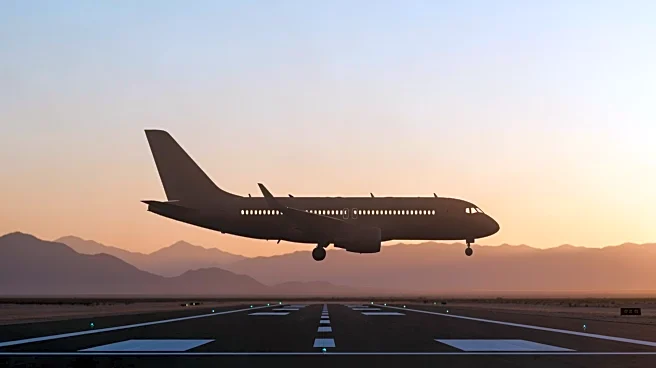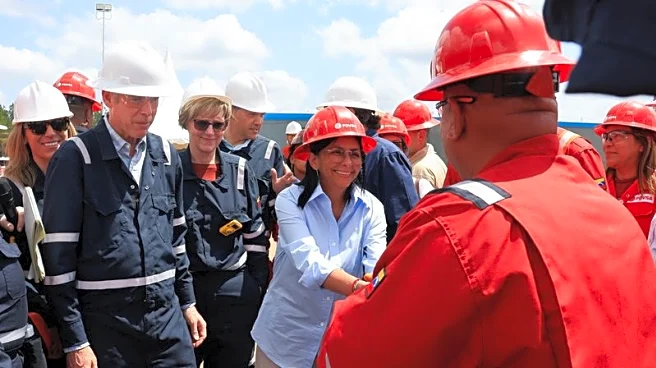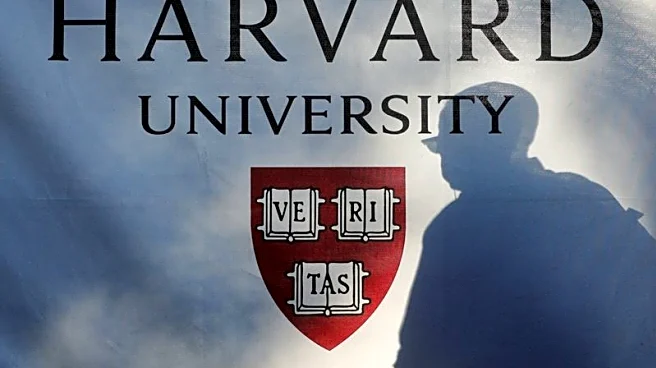What's Happening?
The 2026 FIFA World Cup is set to be a landmark event, as it will be the first time the tournament is hosted across three countries: the USA, Canada, and Mexico. This edition will also feature an expanded format with 48 participating nations, a significant increase from previous tournaments. Argentina, the defending champions, are among the favorites to win, alongside other strong contenders such as Spain, Brazil, France, and England. The tournament promises to showcase a diverse array of talent, with teams like Germany and Portugal also expected to make a strong showing. The event is generating significant anticipation as qualifying campaigns are underway, and fans are eager to see how the expanded format will play out.
Why It's Important?
The 2026 World Cup represents a major shift in the global football landscape, with its expanded format allowing more countries to participate, potentially increasing the sport's reach and popularity. Hosting the tournament across North America could boost tourism and economic activity in the region, providing opportunities for local businesses and infrastructure development. The event also offers a platform for showcasing cultural diversity and fostering international cooperation. For the participating teams, the tournament is a chance to make history, with nations like the USA aiming to capitalize on home advantage to make a significant impact on the world stage.
What's Next?
As the tournament approaches, teams will continue their preparations, with qualifying matches determining the final lineup of participants. Host countries are expected to ramp up infrastructure projects to accommodate the influx of visitors and ensure the smooth running of the event. Fans and stakeholders will be closely monitoring developments, including team selections and strategies, as excitement builds for what promises to be a unique and memorable World Cup. The expanded format may also lead to discussions on its impact on the competitive balance and logistics of future tournaments.
Beyond the Headlines
The decision to expand the World Cup format could have long-term implications for the sport, potentially influencing how future tournaments are organized and perceived. It may also spark debates on the sustainability and environmental impact of hosting such large-scale events across multiple countries. Additionally, the tournament could serve as a catalyst for social change, promoting inclusivity and diversity within the sport. The involvement of North America as hosts might also strengthen diplomatic ties and cultural exchanges between the participating nations.










